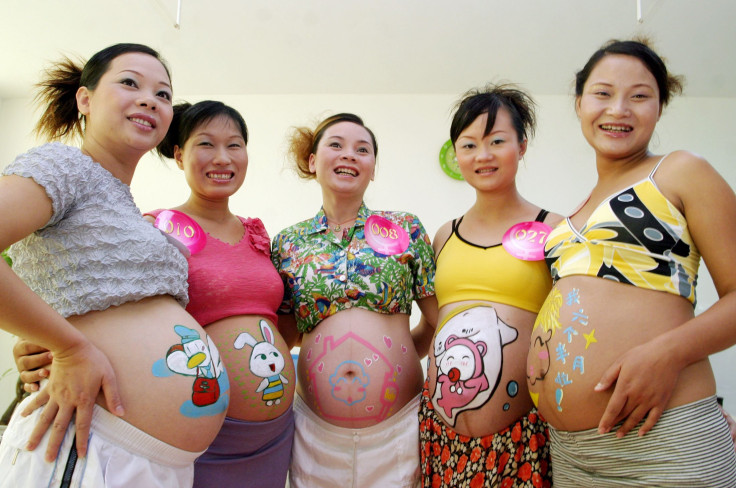Expectant Chinese Mothers Flock To The U.S. To Give Birth, But It's Trickier Than You Might Think

Many wealthy Chinese parents have for years tried to deliver their babies first in Hong Kong, now in the United States, so they could get around China's one-child law and make sure their children are granted either Hong Kong or U.S. citizenship. But now, many of these parents have to get more creative than ever as authorities wise up to the tactic.
Having a baby in the U.S. may make good sense to the Chinese, since babies born on U.S. soil automatically receive American citizenship, but it is definitely not a choice available to everyone, according to the Economic Observer, a Chinese news outlet.
Unlike the stereotype of poor immigrants giving birth to anchor babies in the U.S. to secure residency rights for themselves, China’s nouveau rich -- celebrities, bureaucrats, professors and business owners, among others -- are usually the ones hoping to give their children better travel and education opportunities by giving birth in the U.S.
In the past, wealthy Chinese flocked to Hong Kong to deliver their babies, but so many took to giving birth there that they crowded the city’s hospitals, and the locals became angry. As a result, the new Hong Kong government announced that both public and private hospitals should stop accepting pregnant women unless at least one of the expecting parents is a Hong Kong resident.
Expecting mothers are now flocking to the U.S. instead, which may be somewhat harder than gaining entrance to Hong Kong. Chinese citizens have to get a visa, pass through customs, find a host to stay with, give birth, and get the baby back to China after all the paperwork is complete. U.S. consular officers are well-informed about this technique, and just getting the visa could be difficult for pregnant Chinese women.
After that, finding somewhere to stay for a few weeks to a few months is also no easy feat. A cottage industry of auxiliary businesses surrounding this practice has flourished in the form of “confinement centers,” which house these women, especially in cities with large Chinese communities like Los Angeles and San Francisco. Some Chinese women arrive in the U.S. late in their pregnancy, which ring alarm bells for customs officials who interview them prior to entry.
The high-end confinement centers usually have individual bedrooms with a yard and a swimming pool. Some even have nutritionists, doctors, nurses and child development specialists to make expectant mothers more comfortable. A three-month stay could cost more than 100,000 yuan ($16,330). If one includes the plane tickets, nannies to look after mother and child, and any preparation costs, traveling to the U.S. just to have a baby there could be very expensive.
But for many, the potential payoff of having an American baby, the value of which is often hyped by intermediary agencies, is well worth it. Some, however, realize that the expectations of what U.S. citizenship for their child will bring may be too lofty.
“Having U.S. citizenship doesn’t mean you can have the American dream,” said Lin Hao, a Chinese senior executive whose wife gave birth in San Francisco, according to the Economic Observer. “These are two different things.”
© Copyright IBTimes 2024. All rights reserved.





















